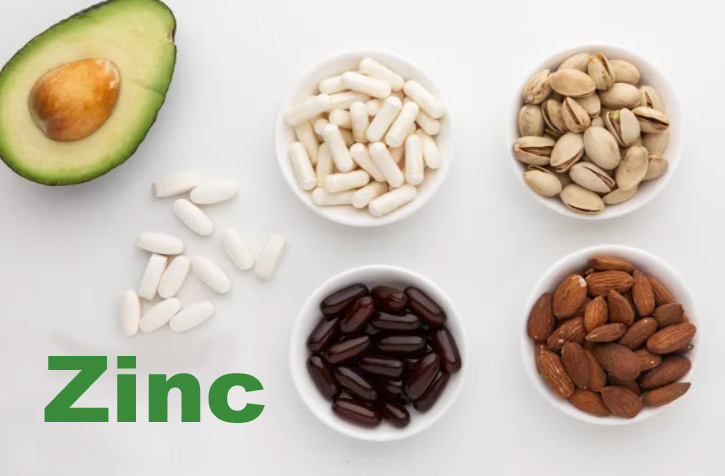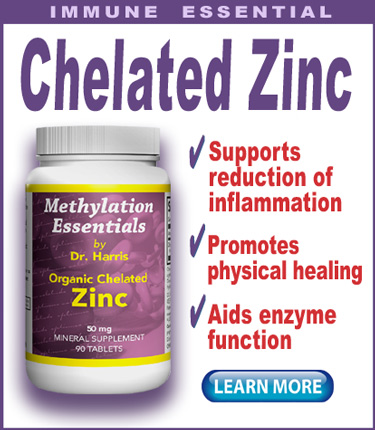A collaborative effort by researchers from four countries has fingered an inadequate intake of the mineral zinc as one of the “most devastating nutrient deficiencies” in the world’s population.
Though minerals are often overlooked in the sphere of essential nutrients needed by humans, the researchers noted that zinc determines “a greater number of critical life functions than any other micronutrient.”
Despite these critical functions, however, zinc remains among the most common deficiencies globally with almost one in five people classified as deficient. Because of this, the researchers have issued a new “Call to Action” report to build global awareness.
The collaboration included researchers from universities and hospitals in the U.S., UK, Pakistan and Canada.
The findings and Call to Action were published in Advances in Nutrition in March 2024. Zinc has catalytic, structural and regulatory roles that are essential to metabolic pathways, gene expression, hormone function, inflammation, immune response and much more. Zinc also plays an important role in insulin secretion and glucose homeostasis, and low status has been associated with more severe type 2 diabetes mellitus.
In children, the impact of severe zinc deficiency includes cognitive impairment, recurrent infections and diarrhoea, and delayed wound healing. In adolescents and adults, zinc deficiency impairs fertility and leads to an increased risk of cardiovascular conditions.
Because of these numerous roles, and because so many of these roles are unknown to the average person, the researchers assert that of all the nutrient deficiencies “that of zinc is the most insidious.”
In short, zinc is vitally important to health and growth across the entire course of life course… yet when a deficiency is causing a problem it is often not recognized or addressed.
Reasons
According to the surveys conducted by the researchers, zinc deficiency is present in 17% of the world’s population. The reasons for the prevalance of zinc deficiency are numerous; however, in their new Call to Action, researchers assert that worldwide nutrient depletion of farmland soils and skyrocketing cost-of-living rates are primary reasons.
Nutrient depletion in soil has been a recognized problem for decades, affecting virtually all nutrients that are passed from soil to plants to humans.
Meanwhile, the cost-of-living issue is relatively new. Though food pricing has always been an issue, only in recent years has processed food—deemed to be cheaper and easier to store—universally replaced fresh food in the world’s markets. And these processed foods are typically deficient in nutrients, including zinc.
Another reason for high deficiency rates is the difficulty in determining deficiency in the first place.
The most frequently used biomarker of zinc status is plasma zinc concentration, however this fluctuates in an individual by 20% over the course of the day. It is also influenced by the length of overnight fast, the size and composition of the previous meal, and inflammation. Even when these factors are controlled, variability occurs.
Several other functional biomarkers of zinc are starting to be utilized for assessing zinc adequacy, so it is hoped that evaluating zinc levels will become more accurate in the near future. Data from animal models suggest that changes in gut microbiota may also be used one day for the evaluation of zinc status.
Solutions
In discussing ways to address the zinc deficiency epidemic researchers agree there is no simple answer. In wealthier western countries zinc supplements may help with the situation. Diet education can also help. In poor countries, however, these suggestions are unlikely to succeed.
“Increasing zinc intake and combating global zinc deficiency requires context-specific strategies and a combination of complementary, evidence-based interventions, including supplementation, food fortification, and food and agricultural solutions such as biofortification, alongside efforts to improve zinc bioavailability,” the researchers wrote in the published Call to Action.
“Enhancing dietary zinc content and bioavailability through zinc biofortification is an inclusive nutrition solution that can benefit the most vulnerable individuals and populations affected by inadequate diets to the greatest extent.”
Find zinc in the following products offered by Optimal Health Systems:
• Optimal Zinc-Oxy Spray
• Essential Chelated Zinc
• Exposure Protection Pak
• Whole Food Vitamin/Mineral
• Natural Z Pak
– – –
Source: Advances in Nutrition.


